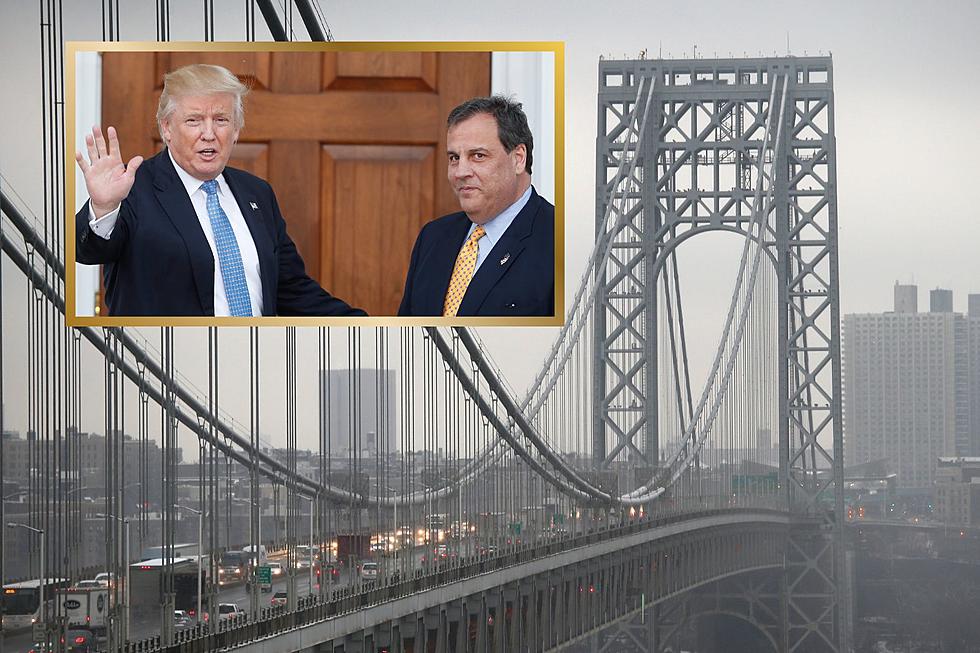
Christie defends ending ‘special tax break’ with Pennsylvania on income taxes
Gov. Chris Christie said the reciprocal income-tax deal with Pennsylvania is a bad policy that allows wealthy people to game the tax system, but he indicated he’s willing to reverse his intention to end the agreement if he’s able to cut public workers’ health care costs.
On ‘Ask the Governor,’ Christie said the 2017 state budget relies on $250 million in unidentified reductions in health-care spending. About $100 million has been found, but the administration and teachers have been fighting, including in court, over proposed changes to their health plan.
Under a reciprocal agreement between the states dating to the 1970s, residents of New Jersey and Pennsylvania pay taxes to the state where they live, rather than where they work.
Roughly 120,000 people from each state commute across the border. The agreement means lower income residents in New Jersey benefit from the Garden State’s graduated income tax scale, while wealthy residents of Pennsylvania benefit from paying the Keystone State’s flat tax.
Christie exercised his authority to end the agreement in early September. The impact is projected to yield an additional $180 million in revenue for New Jersey’s budget.
“The only reason I have to do this is because the Legislature didn’t balance the budget,” said Christie – who then defended the change at length.
“People across the state, in North Jersey and on coastal southern New Jersey could very well ask: Why do we have a tax compact with Pennsylvania, which allows wealthy people to work in New Jersey, to live in Bucks County, Pennsylvania, and to pay no income tax in New Jersey?” Christie said.
“If the opposite is (in) effect in New York State, we don’t have that deal. We don’t have that deal with Delaware. It’s only with Pennsylvania,” he said.
“Now, I was content to leave the tax policy there if I didn’t need the revenue because of the Legislature’s irresponsibility. But it is also not good policy to just put out one place in the state, that southwestern part of the state, for a special tax break, which is what it is. And it allows a lot of really wealthy people to game the system,” Christie said.
“Either the Legislature comes back and gives me the tools to get the savings that they promised in their budget for health care, or the compact’s gone,” the governor said.
Because there’s no deal on health-plan savings, teachers’ health premiums will rise 9 percent next year, Christie said.
“Because their union won’t show up at meetings. Because they’re delinquent and they’re awful, awful representatives of their members,” Christie said.
A state Superior Court judge ruled Monday that the union’s members of the School Employees’ Health Benefits Commission can’t be ordered to attend a meeting where a vote is intended on a plan to force all Medicare-eligible retirees into a Medicare Advantage plan.
Plan changes have to be made by a different panel, the New Jersey Education Association contends. NJEA leaders say Christie wants to push the change through the SEHBC because it is short one union member and that the governor is stalling on filing the vacancy.
“By rejecting the state’s attempt to illegally force a vote while labor does not have its full legal representation on the SEHBC, Judge (Mary) Jacobson made a clear statement that Gov. Christie’s political manipulation is inappropriate and will not be sanctioned by the court,” said NJEA President Wendell Steinhauer.
Police officers, firefighters and other local and county workers won’t pay more toward their health premiums in 2017, Christie said. State workers will have a 4.3 percent increase.
More From New Jersey 101.5 FM









